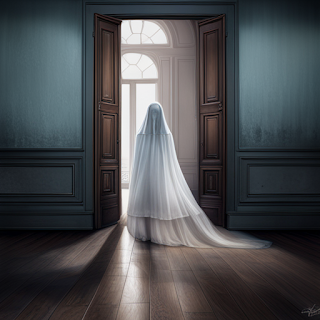Featured
- Get link
- Other Apps
Poltergeists: Troublesome Spirits or Manifestations of the Subconscious Mind
From the eerie knockings in the night to objects floating through the air, the tales of poltergeists have long fascinated and frightened people worldwide. But what indeed lies behind these mysterious occurrences? Are we dealing with mischievous spirits, or is there a more profound psychological underpinning to their activities? This long-form exploration delves into the legends, the theories, and the studies surrounding one of the most baffling paranormal phenomena: poltergeists.
Introduction
Imagine the scene: a family gathering disrupted by a sudden chill in the air, silverware dancing across the table of its own accord, and uneasy whispers about the unexplained. Such is the unsettling tableau often attributed to poltergeists. These entities, known chiefly for causing physical disturbances, have perplexed humanity for centuries, straddling the line between superstitious folklore and documented incidents. In this article, we will take a closer look at the phenomenon of poltergeists and explore the possible explanations behind their reputed antics.
Historical Background
Throughout history, cultures across the globe have reported poltergeist cases, each with its unique set of unsettling anomalies. From the disturbances at Martin Luther's home to the infamous Enfield Haunting, these tales have laid the groundwork for understanding—or perhaps fearing—the capabilities of such presences. But where did the term "poltergeist" originate, and what were some of the earliest documented incidents?
The word "poltergeist" comes from the German words "poltern," meaning to make noise, and "Geist," meaning spirit. This etymology points to its early origins in European folklore, where poltergeists were believed to be spirits or demons responsible for creating chaos and mischief in households. One of the earliest recorded cases dates back to 856 AD, when a German bishop wrote about a poltergeist haunting a farmhouse. However, it was not until the 19th century that these disturbances caught the attention of scientists and researchers.
Psychological Explanations
Can we find the origins of poltergeists in the twilit corridors of the human mind? Freudian theorists argue that they are projections of extreme emotional stress and repressed desires, saying our psyche might be the source of such havoc. On the other hand, Carl Jung speculated that poltergeists are formed from the collective unconscious, arising as archetypal figures during periods of psychological upheaval.
Paranormal Explanations
Conversely, some researchers firmly believe that poltergeists are not the products of troubled minds but rather the workings of spirits from beyond our plane. These experts in paranormal phenomena point to evidence gathered during investigations, such as unexplained audio recordings and sudden temperature drops, to bolster their claims of otherworldly interference.
Case Studies
Over the years, several high-profile poltergeist cases have captured the public imagination. Notable among them are the Bell Witch haunting in Tennessee and the terrifying German case of the Rosenheim Poltergeist. Each brings its set of inexplicable occurrences that have been examined by both believers and skeptics alike. However, despite numerous attempts to study and understand them better, poltergeist cases remain shrouded in mystery.
Debunking
Of course, not everyone is convinced of the supernatural origin of poltergeists. Skeptics point to psychology, tricks of perception, and outright fabrication as more reasonable explanations for these phenomena. By scrutinizing the evidence scientifically, they often uncover more mundane realities beneath the sensational accounts.
Conclusion
The debate surrounding poltergeists continues to rage amidst the personal testimonies and scientific inquiries. Whether rooted in the intricacies of the mind or the realm of spirits, the phenomena ascribed to poltergeists still leave us amid an enigma. And so, as the night grows more profound and the shadows play across the walls of dimly lit rooms, the question persists: are poltergeists all in our heads, or might there be a sliver of reality in the ethereal disturbances we cannot explain?
3 Tips to Remember
- Stay Curious - Whether drawn to the paranormal or psychological, keep an open mind as more research unfolds.
- Scrutinize the Evidence - Look closely at case studies and investigations to form your own opinions on the existence of poltergeists.
- Dive Deeper - Explore both sides of the debate to develop a well-rounded view of these mysterious phenomena.
Poltergeists have stood the test of time, surviving as enigmatic tales that bridge the chasm between horror and reality. For the thrill-seeker, the academic, and the skeptic, they offer endless matters for contemplation and investigation. As we delve deeper into this shadowy domain, we may find that these entities, whether spirits of the departed or specters of the mind are essential threads in the rich tapestry of human experience.
- Get link
- Other Apps
Popular Posts
The Harmonious Echoes Within: A Deep-Dive into the World of Sound Healing
- Get link
- Other Apps




Comments
Post a Comment